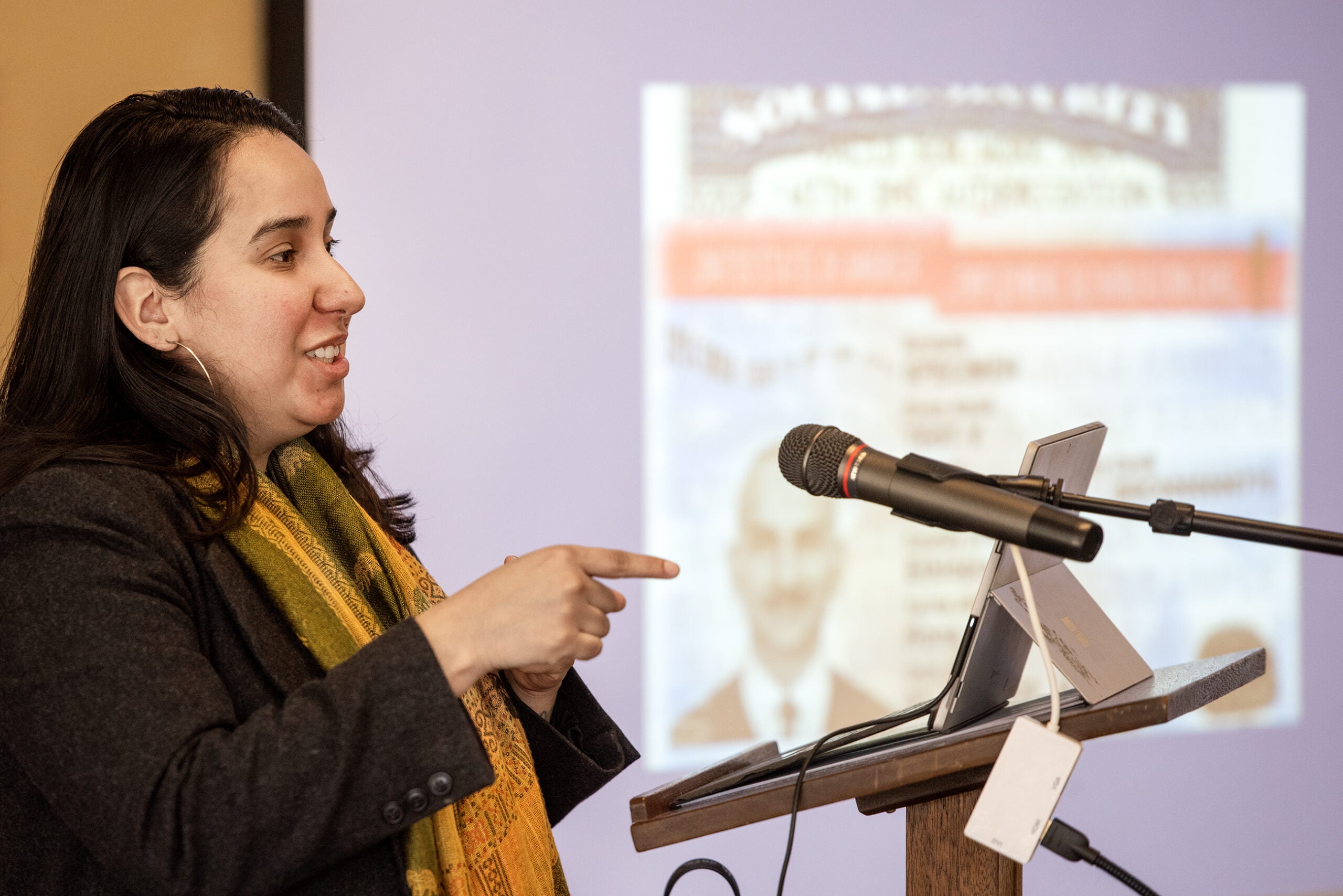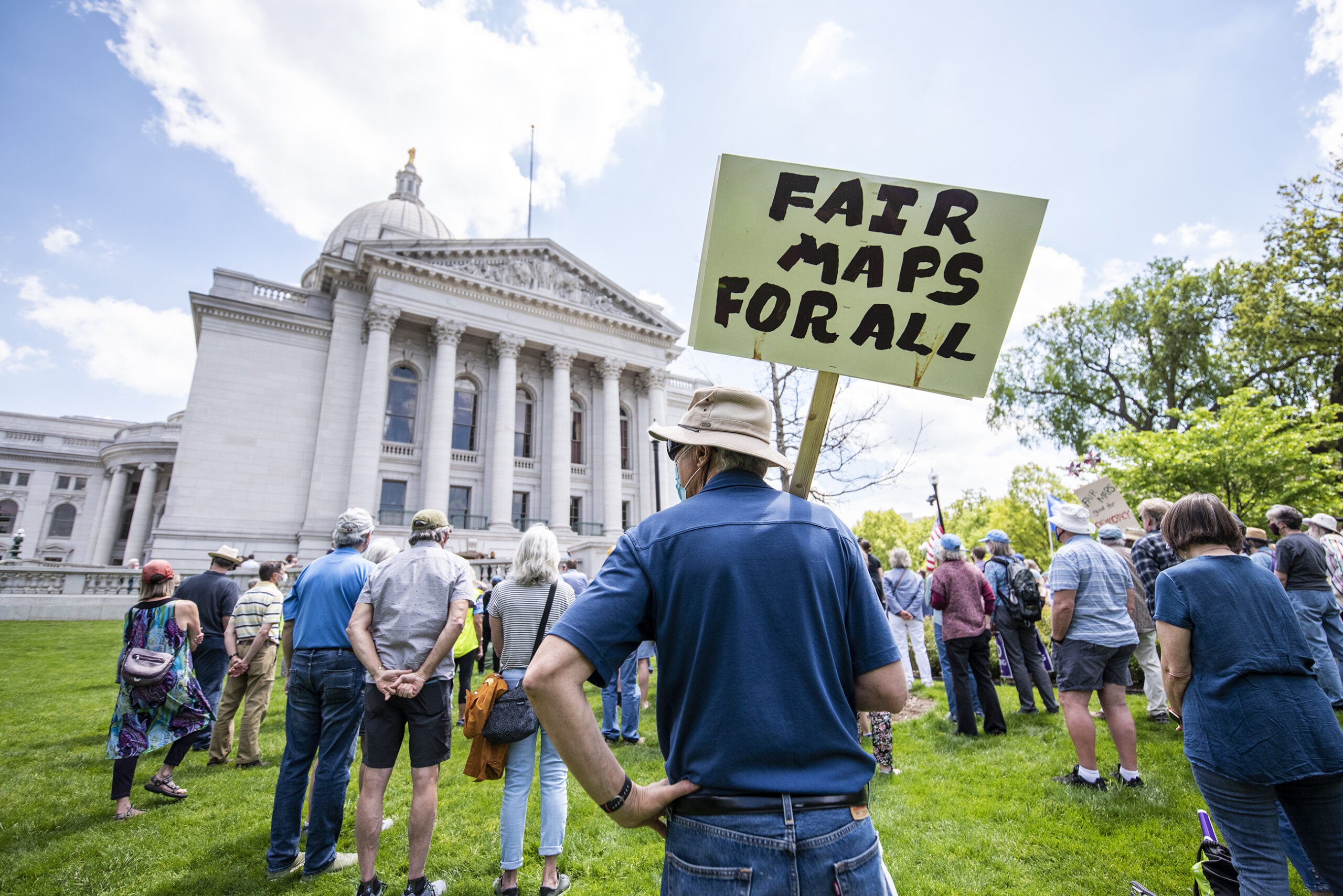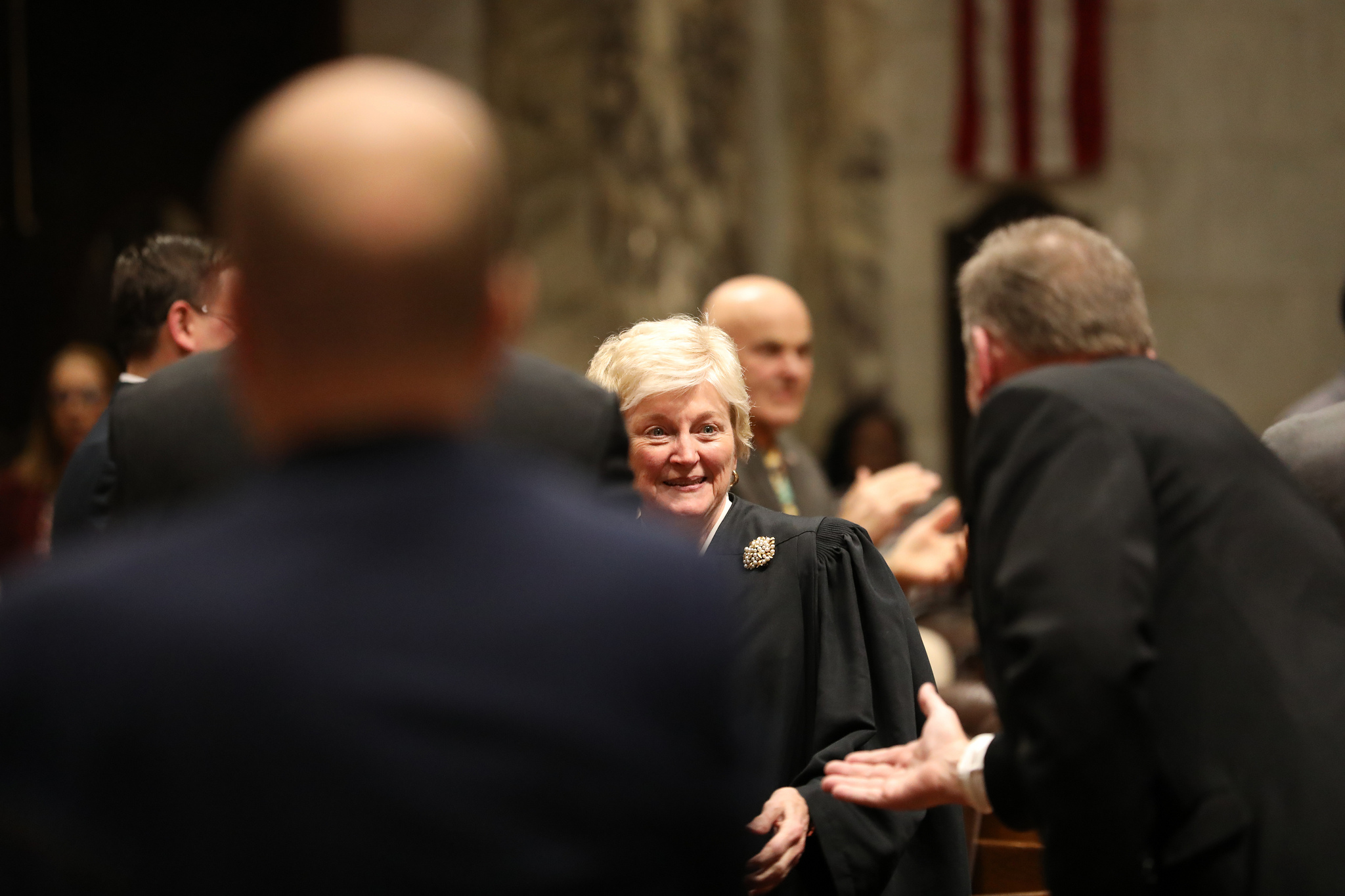Judges testified before the state Supreme Court on Monday, in a case that could change the rules judges follow when they handle cases where one of the parties doesn’t have a lawyer.
At least one of the justices thinks the proposed change would undermine the adversarial nature of the current justice system.
The judges who testified said that often self-represented people, especially in family law cases, don’t get to present their cases simply because they don’t know how the court system works. The proposed rule would encourage, but not require, judges to help such people get a fair shake in court.
Stay informed on the latest news
Sign up for WPR’s email newsletter.
Justice Patience Roggensack said the rule threatens to change the judge’s role from being the neutral referee to an advocate.
“I have a lot of concerns about our courts being turned into social service agencies,” said Roggensack.
In the following exchange, Roggensack told Milwaukee County Chief Judge Jeffrey Kremers that the rule strikes at the heart of the current judicial system.
Roggensack: “You know we have an adversary system, and you realize, I’m sure, that you’re changing that by what you’re doing here.
Kremers: “I don’t … With all respect your honor, I don’t believe we’re changing anything with respect to the adversarial system. What I care about as a judge is that when people walk out of the court room, believing that they’ve been heard. That they have had an opportunity to state their case.”
Twenty-five other states and the District of Columbia have already adopted rules similar to those being proposed in Wisconsin. Advocates like Kremers say the change will simply reaffirm what many judges in the state are already doing in response to the growing number of people defending themselves in court because they can’t afford a lawyer.
Wisconsin Public Radio, © Copyright 2024, Board of Regents of the University of Wisconsin System and Wisconsin Educational Communications Board.





